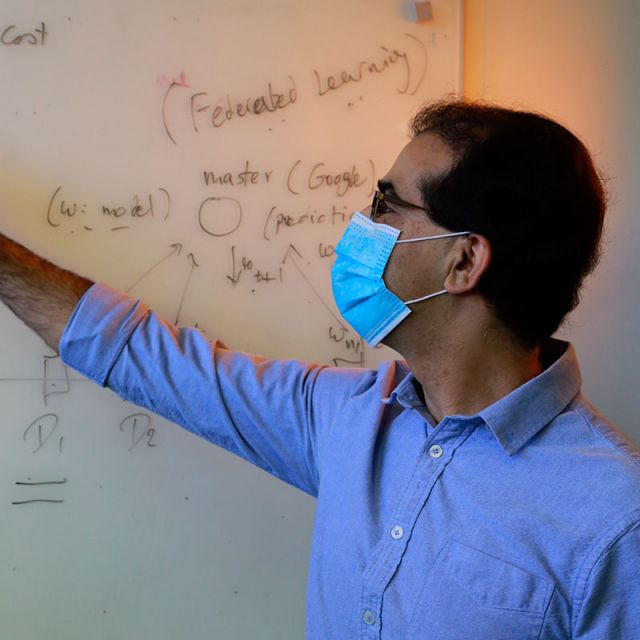
Faculty Mentorship: Professor Ramtin Pedarsani
The ECE Current Newsletter (Fall 2020)
"I think a good mentor is someone who cares about the future of their students, and fully supports them in their academic efforts and even non-academic difficulties"
What does mentoring mean to you and why is it important in your profession?
I think a good mentor is someone who cares about the future of their students, and fully supports them in their academic efforts and even non-academic difficulties. It might take time for students to find their research interests, so it is crucial that a mentor guide them to find their interests and equip them with tools to thrive in their careers.
As a student did you have faculty that you looked up to?
I received my doctoral degree at UC Berkeley and worked with top researchers in my field including my PhD adviser, Jean Walrand, and postdoc adviser, Kannan Ramchandran. I also collaborated with Pravin Varaiya, a faculty that I look up to. He has contributed significantly in many different areas and application domains, and is very broad, flexible, and visionary in his research. As researchers, it is important that we not limit ourselves to narrow fields and that we be open to new areas and applications throughout our career.
Do you think it is helpful for undergraduates to find a mentor?
Yes! Many students don’t have a clear view of their future career options, their interests, and their goals. It would be great for students to talk to a mentor, get exposed to undergraduate research, get advice about different fields, ask about internship opportunities, and seek general career advice.
How do you measure your success as teacher?
A teacher is successful if students learn material that is useful for their career and future success in their field. I get most excited when students come to me after the class, and tell me that they want to know more about a topic, do research in a related field, or switch their research directions based on the information they learned throughout the course.
Do most students come to you with a clearly defined path and goal? If not, how do you help them get there?
Mostly no! I think the key is to care about their future, try to help them find their interests, and then explain their options to them. I try to elaborate on different paths they can take, the pros and cons of each, and how to be successful in each path.
What aspects of an academic career do you find most rewarding?
For me, solving new problems with students is most rewarding. These can be both purely mathematical problems where we prove a new theorem that is impactful in engineering systems, or a new algorithm designed for an application. The freedom to explore new research directions is also very rewarding.
What do you hope your students take away from their time in your lab?
The most important thing they can learn in my lab is critical thinking and how to make impactful contributions to a field. While the thesis’s contribution is important, I don’t find it to be the most important thing in PhD education. Learning how to approach and solve a new problem is what I mostly want the students in my lab to learn.
Do you have any advice for ECE students?
Students should enjoy learning and the experience of being a student. The goal is not to maximize GPA, but to learn how to be a critical thinker and develop skills to help build their career. We have many opportunities at UCSB, and students should use these opportunities to the best extent without losing the joy of studying and the unique undergraduate experience.
The ECE Current – "Faculty Mentorship: Professor Ramtin Pedarsani" (page 11)